Anglican communion to restrict US Church over gay marriage
- Published
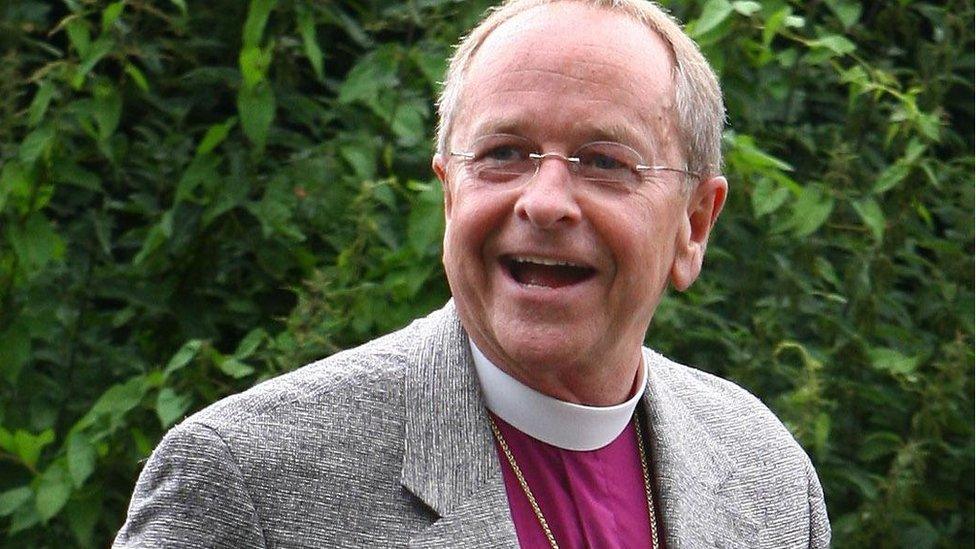
The ordination of Gene Robinson as a bishop in 2003 angered many in the global Anglican community
Anglican leaders have barred a liberal US branch from decision-making for allowing same-sex marriage.
Anglicans have been divided on the issue since the US Episcopal Church ordained an openly gay bishop in 2003.
Leaders said the church's stance was a "fundamental departure" from the faith of the majority in what is the world's third largest Christian denomination.
But Episcopal leaders said the three-year bar, which aims to prevent a formal schism, "will bring real pain".
'Fundamental departure'
The decision - made at a four-day meeting of 39 Anglican primates in Canterbury - means the Church will be suspended from participating in the life and work of the Anglican communion, the BBC's religious correspondent Carol Wyatt said.
A statement, external from the primates at the meeting says that the church should "no longer represent us on ecumenical and interfaith bodies, should not be appointed or elected to an internal standing committee and that while participating in the internal bodies of the Anglican Communion, they will not take part in decision making on any issues pertaining to doctrine or polity".
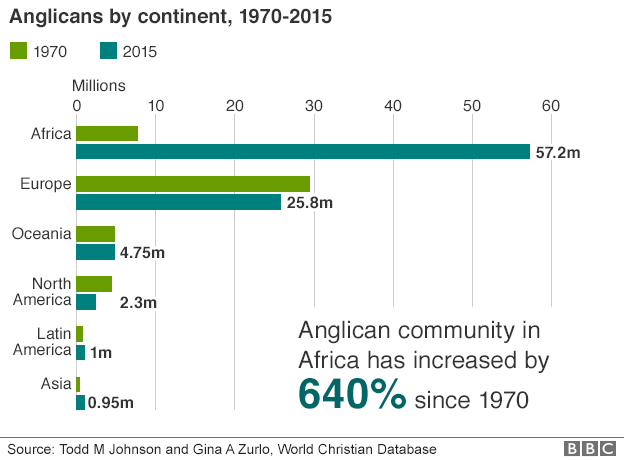
More than 100 senior Anglicans had urged the Church of England to repent for "discriminating" against lesbian and gay Christians in an open letter.
However, the Anglican leaders in Canterbury said the Episcopal Church's approval of gay marriage was "a fundamental departure, external from the faith and teaching" of the majority of Anglicans.
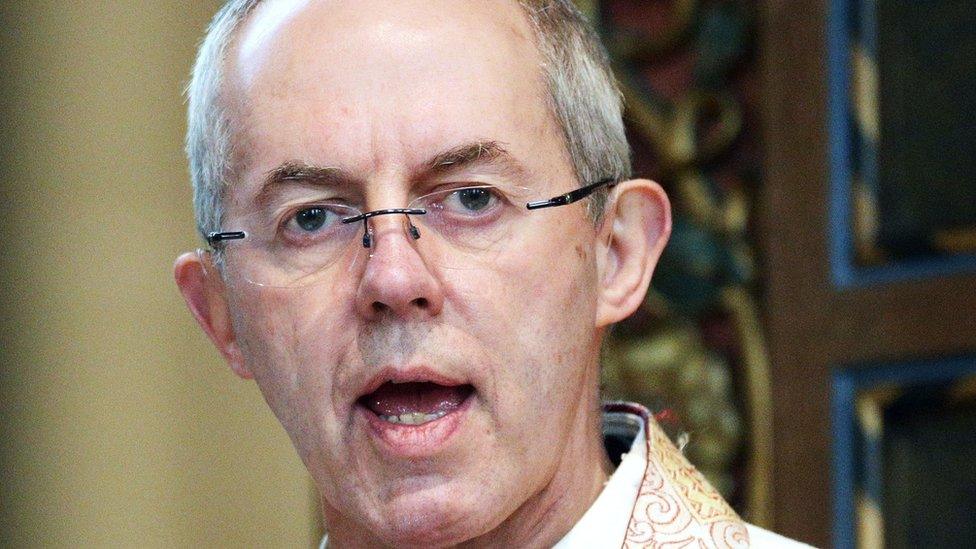
The meeting of the Anglican Church was organised by Archbishop of Canterbury Justin Welby
The rift over the US Episcopal Church's stance on same-sex marriage and homosexuality dates back to the ordination of openly gay Canon Gene Robinson.
He was made a bishop of the Episcopal Church's New Hampshire diocese in 2003.
'Uphold marriage'
The Church leaders added that the majority of those gathered at the meeting - which was described as "really tough" - would "reaffirm" the teaching of scripture that "upholds marriage as between a man and a woman".
Those who sent the open letter to the primates ahead of the meeting have expressed "deep hurt" at the result.

Analysis
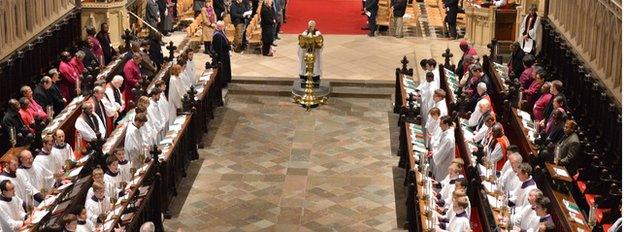
BBC religious affairs correspondent Caroline Wyatt
There was an atmosphere of significant mistrust at this meeting, perhaps hardly surprising given the animosity of the past years between the most traditionalist of the provinces and the most liberal.
The disagreement over Anglican doctrine regarding same sex marriage is probably a more fundamental one than the divisions that raged over female priests.
But the subtext of the meeting has been the power struggle just beneath the surface over who should lead the Anglican communion in the future - the countries of the global south, where congregations are growing, represented in part by Global Anglican Future (GAFCON) or Canterbury, its traditional leadership based in an increasingly secular global north where congregations have been in decline for many years.
Through diplomacy and negotiation - and a tight media blackout which succeeded until almost the last day - the Anglican Communion has pulled through as one, for now.
The careful wording of the resolution agreed by the majority of primates ensured there was no mention of the words "sanction" or "punishment", although the strength of feeling about the Episcopal Church's unilateral action was abundantly clear.
Nonetheless, even as GAFCON welcomed the deal, its leadership added that: "This action must not be seen as an end, but as a beginning."
So even though the Anglican Communion has not "moved into separate bedrooms", as some had expected, it is continuing to live in a deeply divided household.

The Global Anglican Future Conference (Gafcon), which represents conservative Anglican leaders worldwide, had sought sanctions against the US Episcopal Church, and some members said they would walk out of this week's meeting unless a penalty was applied.
In a statement Gafcon said it was pleased by the outcome but said "this action must not be seen as an end, but as a beginning".
Episcopal Presiding Bishop Michael Curry told the other leaders their vote would bring "real pain" to gays and lesbians and to Episcopalians "committed to following Jesus in the way of love and being a church that lives that love".
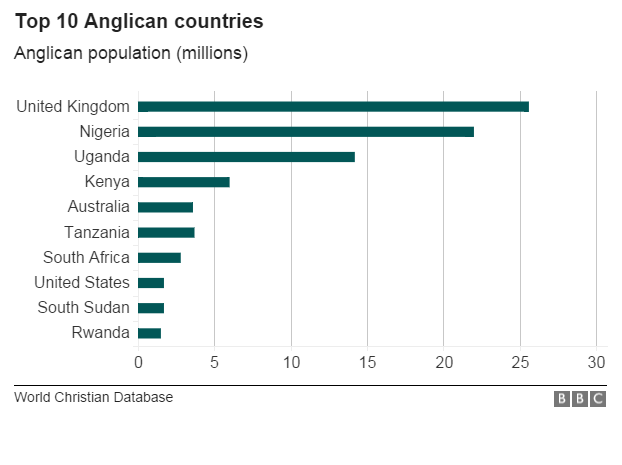
'Deep pain'
He added he was still committed to the Anglican Church.
Other gay Christians and supporters of equal marriage said there was "no acknowledgement of the deep pain the Anglican Communion's decisions will cause, nor any concern for the pastoral care of LGBTI Christians."
Labour MP and former Anglican minister Chris Bryant, who is gay, said: "I've finally given up on Anglican church today after its love-empty decision on sexuality.
"One day it will seem wrong as supporting slavery."
Archbishop Welby is to appoint a task group to rebuild trust in the Anglican Communion.
Anglicans, whose roots are in the missionary work of the Church of England, are the third-largest grouping of Christians in the world, behind Roman Catholics and the Orthodox.
- Published15 January 2016
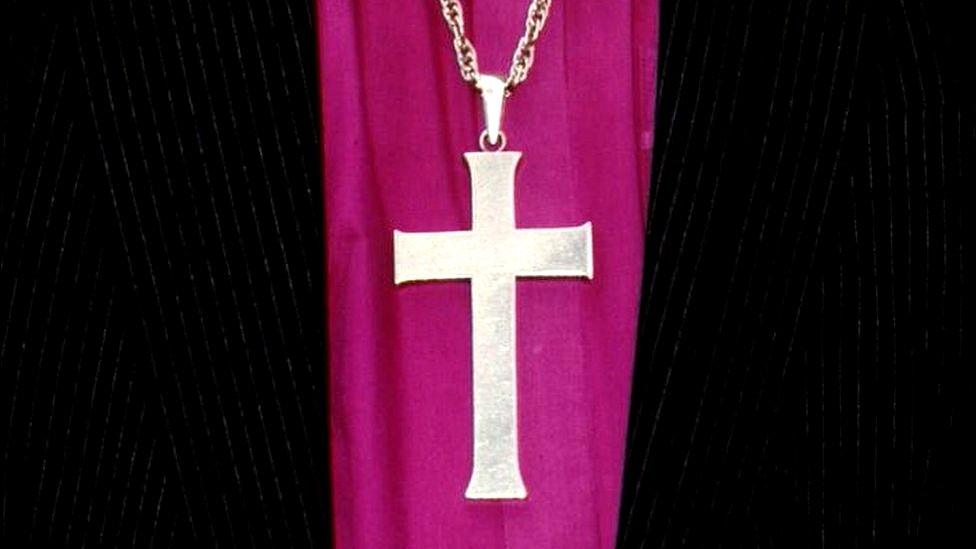
- Published10 January 2016
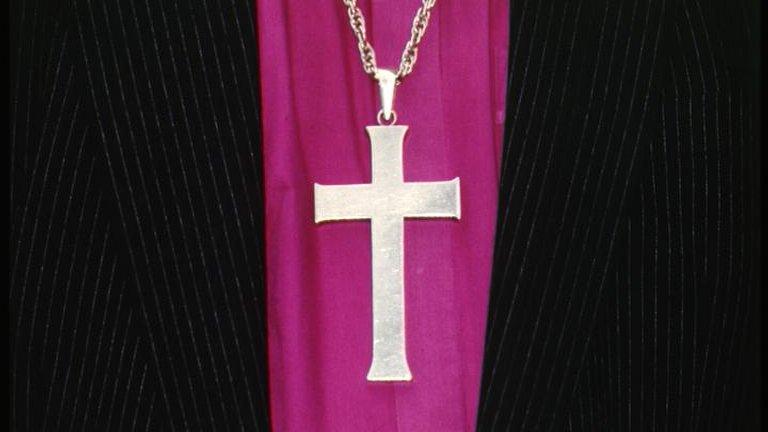
- Published15 June 2015